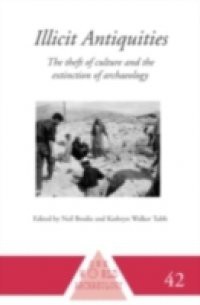The exploitation of archaeological sites for commercial gain is a serious problem worldwide. In peace and during wartime archaeological sites and cultural institutions, both on land and underwater, are attacked and their contents robbed for sale on an international 'antiquities' market. Objects are excavated without record, smuggled across borders and sold for exorbitant prices in the salesrooms of Europe and North America. In some countries this looting has now reached such a scale as to threaten the very survival of their archaeological and cultural heritage. This volume highlights the deleterious effects of the trade on cultural heritage, but in particular it focuses upon questions of legal and local responses: How can people become involved in the preservation of their past and what, in economic terms, are the costs and benefits? Are international conventions or export restrictions effective in diminishing the volume of the trade and the scale of its associated destruction?

